
Do you have a toothache and want to find a natural approach to treat it?
YES! Essential oil can be beneficial. A toothache never comes on suddenly and can be caused by a variety of dental problems. You’re caught off guard and unprepared, seeking for a natural pain reliever. When this happens again, use essential oils for toothache to obtain instant relief.
What causes Toothache?
Toothache is caused by inflammation of the pulp, which is located in the center of the tooth. The pulp includes nerve endings that are extremely painful. Pulpitis, or inflammation of the pulp, can be caused by dental cavities, trauma, or infection. You may experience toothache symptoms as a result of referred pain from the jaw.
Toothaches can be brought on by a number of reasons, including:
- Cavities
- Filling that is not tightly packed
- Root that has been exposed
- A broken tooth
- Damaged crown from an infected teeth
- Infection of the nose
- Grinding of the teeth
I recently got a toothache that wasn’t very bad, but it was uncomfortable and painful anytime I tried to eat and I can’t seem to concentrate when I’m doing research. I used essential oils to the painful spot and it was gone after three applications. I was relieved to skip the dentist, but if the discomfort persisted, that’s where I’d end up.
Essential oils can help relieve pain and hold you over until you can go to the dentist, but they should not be used as a long-term cure for dental pain. Pain is a warning indication that there is a serious problem, and it is better to figure out what is causing it so that you can fix it.
Why Use Essential Oil To Treat A Toothache?
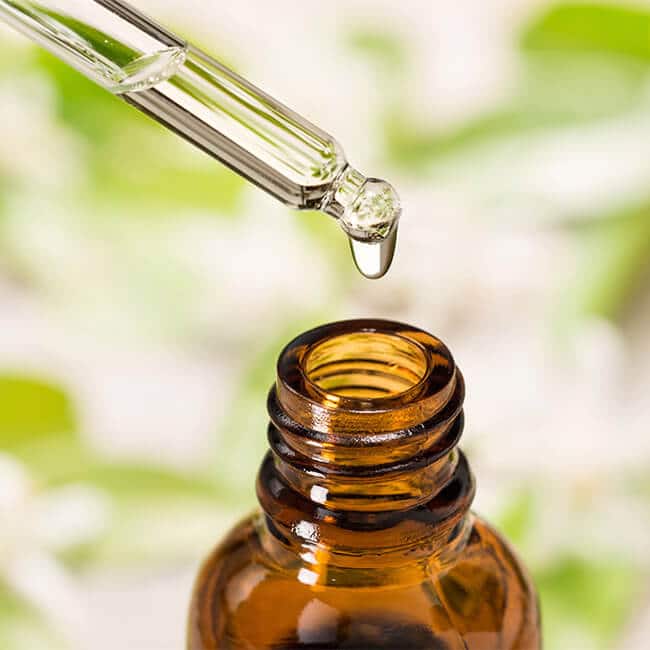
When you have a toothache, it is always a good idea to go to the dentist to make sure it isn’t caused by a major problem with your teeth or gums. However, toothache can strike at the most inconvenient times, such as during the night or in the midst of the day. In situations like these, it’s useful to have a little cure on hand to dull the pain until you can get to the dentist.
However, this does not imply that you can simply smack a little lavender essential oil or cinnamon essential oil in your mouth and the discomfort will go. So, which natural treatments and essential oils are effective for toothache relief? Clove oil is an excellent essential oil for toothache relief. You may recall your grandmother or grandfather searching the cupboards for clove oil when you were a child, and they were most likely using it to treat a toothache.
10 Effective Essential Oils For Soothing Toothache
I gathered all of the essential oils from different websites that are most effective in relieving toothache as well as their benefits.
Here are the List of 10 best effective essential oils for soothing toothache:
1.CLOVE ESSENTIAL OIL
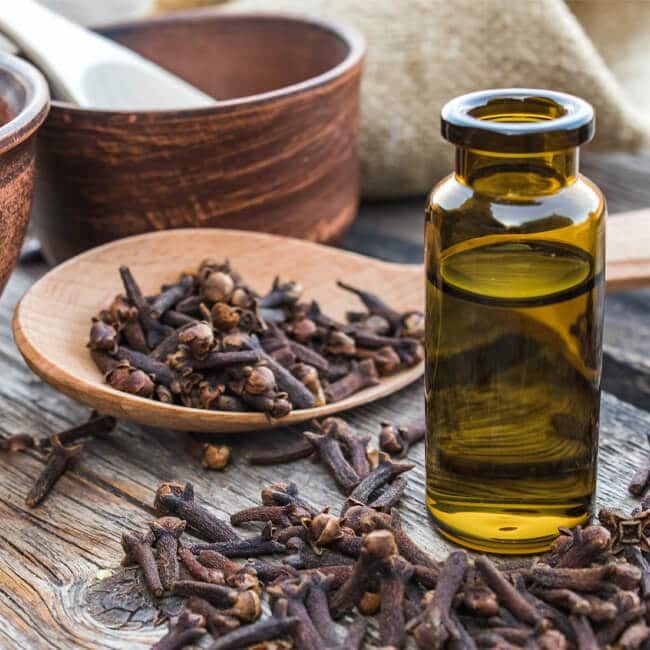
The active component in clove oil is eugenol, which is a natural anesthetic. To relieve a toothache, it numbs and reduces discomfort. Eugenol is also anti-inflammatory in nature. It may help to alleviate swelling and discomfort in the afflicted region. Eugenol is included in Dry Socket Paste, an over-the-counter therapy recommended by dentists for tooth extraction pain.
A British study discovered that eugenol is more efficient than another form of painkiller at decreasing pain, inflammation, and infection. Participants of this study who have used the eugenol-based paste had better healing of wounds than others who received complementary therapies or no treatment at all.
Another researchers compared a homemade clove gel, 20% benzocaine, and a placebo. They observed both clove gel and benzocaine significantly reduced pain. Clove gel performed similarly to benzocaine.
HOW TO USE
Simply dab Clove Oil on the afflicted region OR mix Clove Oil with coconut oil and apply to get instant relief from toothache and gum swelling.
BENEFITS
Because of the presence of the chemical component eugenol, which helps to reduce pain, clove oil is recognized for its antibacterial and analgesic properties. Clove oil has a numbing effect that helps to relieve toothache agony and pain.
2. CINNAMON ESSENTIAL OIL
Cinnamon has long been revered for its therapeutic qualities, as well as its warming scent and flavor. Cinnamon essential oils are derived from the tree’s bark, leaves, fruits, and flowers, and the spice is produced of dried bark from different plants in the Cinnamomum genus. According to research, several of the chemicals found in cinnamon have antioxidant, anti-inflammatory, and antibacterial effects.
Cinnamaldehyde appears to be one of the most potent chemicals found in cinnamon. Furthermore, the spice includes polyphenols, which are beneficial plant components. These chemicals combat germs by causing cell wall damage and impeding cell division, therefore limiting bacterial development.
HOW TO USE
As a mouth freshener and for optimum oral treatment, mix a glass of water with some drops of cinnamon oil.
BENEFITS
Cinnamon oil is excellent for dental care since it includes menthol, which serves as a breath refresher. Its antibacterial activity aids in the treatment of gum disorders such as gingivitis and oral thrush, as well as the prevention of tooth decay.
3. PEPPERMINT ESSENTIAL OIL
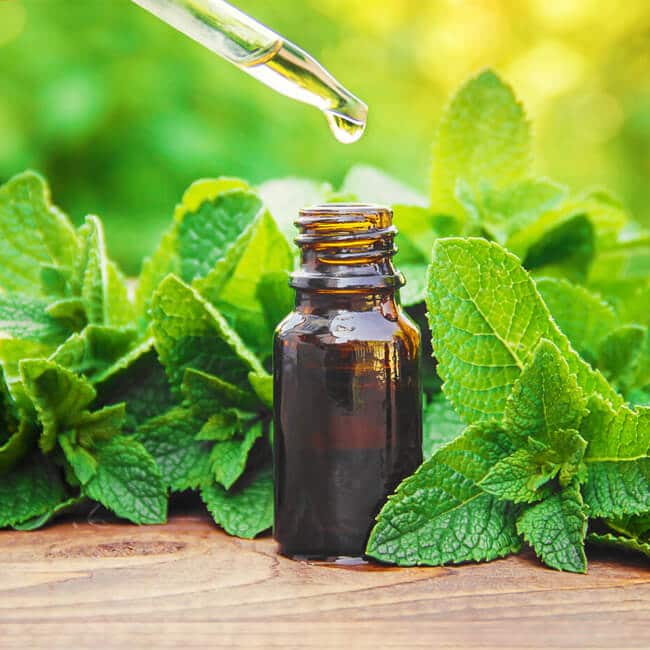
Peppermint oil is extracted from the leaves and blossoms of peppermint plants. It helps to reduce the biofilm on the teeth. It is an essential method of cleansing the gums and teeth. Peppermint oil may be used for a variety of applications. It may be produced from peppermint plant leaves. It can be used to treat skin conditions. When you consume food flavored with peppermint oil, you get a burst of freshness in your tongue. Menthone and menthol are the primary components of peppermint oil.
Peppermint oil is useful for removing biofilm from the teeth. It can be found in the formulation of teeth. It is also well-known for its numbing and cooling properties, which may turn pain into relaxation. According to studies, peppermint oil is quite effective in killing germs and fighting oral diseases. It has the potential to be the cause of the illness and gum disease.
HOW TO USE
Take a glass of water, add 8 drops of Peppermint Oil, and swirl it around in your mouth for 5 minutes. Take cautious not to drink this concoction.
BENEFITS
Because of the presence of Menthol, Peppermint Oil is well-known for its pain-relieving effects. Peppermint Oil provides a cooling impact that aids in the reduction of inflammation and pain. Its antimicrobial property kills germs that cause tooth decay and freshens your breath.
4. TEA TREE ESSENTIAL OIL
Numerous toothaches have been cured by essential oils, at least until the dentist can conduct a permanent treatment/procedure. Tea tree oil is the most effective essential oil for relieving dental discomfort. Tea bushes contain oil, which has an antimicrobial component. If you give it a try, you will discover that it performs an outstanding job of relieving tooth and gum pain.
This oil may be used in a variety of ways, none of which are difficult. Just apply the oil to the afflicted tooth. You may also rinse your mouth with tea tree oil and water. Just make sure you use organic tea tree oil, as non-organic varieties are likely to have a higher amount of a pesticide.
HOW TO USE
Take a glass of water and mix in 8 drops of clove oil, peppermint oil, and tea tree oil. Swish it about your lips for a few seconds, being careful not to swallow it. It is highly helpful in preventing tooth decay.
BENEFITS
Because of its powerful antibacterial properties, Tea Tree Oil is highly helpful in treating cavities and tooth decay. Its anti-inflammatory properties assist to decrease gum swelling and discomfort caused by inflammation.
5. LAVENDER ESSENTIAL OIL
Lavender oil is produced from fresh Lavandula angustifolia flowers. This oil offers a flowery, refreshing, and balanced scent. Lavender Oil pairs nicely with cedarwood, geranium, clary sage, pine, and citrus oils.
Linalool, found in lavender essential oil, has antibacterial and antifungal effects. This might make it useful for decreasing plaque on teeth and preventing cavities.
HOW TO USE
Lavender oil can be used straight to the afflicted region or diluted with Coconut/Olive oil.
BENEFITS
Lavender oil is effective in treating toothache because it possesses antibacterial, analgesic, antiseptic, and anti-inflammatory qualities.
6. FRANKINCENSE ESSENTIAL OIL
Frankincense oil is made from the resin of the Boswellia carteri tree, which belongs to the Burseraceae family. It smells sweet, fruity, and earthy. It works nicely with the essential oils of lavender, sandalwood, cedarwood, peppermint, and ylang ylang.
According to research, frankincense contains analgesic and anti-inflammatory effects. It is considered to alleviate pain and inflammation by blocking the action of 5-lipoxygenase, an enzyme responsible for the production of leukotrienes. Leukotrienes are substances that cause inflammation in the body.
In China, Frankincense essential oil is used in conjunction with myrrh essential oil to alleviate pain and inflammation. Frankincense has been proven to have antibacterial effects when used in an oral preparation, making it beneficial in the treatment of cavities and gum disease.
HOW TO USE
Take 2 glasses of hot water and mix in 2 drops of tea tree oil, 2 drops of frankincense oil, and 6 drops of chamomile oil. To relieve broad pain, combine all of the ingredients and apply as a hot compress.
BENEFITS
Because of its antibacterial and antifungal characteristics, Frankincense Oil is highly efficient in treating tooth decay. Its anti-inflammatory properties aid in the relief of gum pain, swelling, and inflammation. It aids in the relaxation of tense muscles, giving excellent pain relief and promoting dental health.
7. EUCALYPTUS ESSENTIAL OIL

Steam distillation is used to obtain Eucalyptus oil from the leaves of the Eucalyptus tree. It has a pungent, minty scent that is comparable to Vicks. It complements lemon, lemongrass, thyme, and lavender. Eucalyptol is produced from Eucalyptus globulus and is commonly used in mouthwashes and cold treatments.
HOW TO USE
Inhaling the fragrance of eucalyptus oil can help relieve discomfort. It may be used in a diffuser.
BENEFITS
Eucalyptus oil is widely known for its analgesic and pain-relieving properties. Clove oil also has antibacterial properties, which help it combat tooth infection and decay.
8. GINGER ESSENTIAL OIL
Ginger, like turmeric, is a culinary root known for its health-promoting properties. Ginger includes raffinose and gingerol, two chemicals that have been found to help relieve inflammation and discomfort briefly. Ginger’s components can also help lower the oral bacteria that cause cavities and gum disease, making it an all-around useful ally in your oral health program.
HOW TO USE
Take 1 tablespoon of coconut oil and stir with 5 drops of Ginger Oil until completely combined. Apply this combination to the hurting tooth and let it for 10 minutes before gargling with warm water. This procedure should be repeated 3-4 times each day.
BENEFITS
Ginger oil contains antibacterial, anti-inflammatory, and analgesic qualities that aid in the treatment of toothaches and gum disease. Its antimicrobial activity aids in the battle against germs that cause tooth decay.
9. CHAMOMILE ESSENTIAL OIL
Chamomile oil is derived from the Chamomile plant’s blossoms. It has an exotic, sweet, and herbaceous scent that refreshes your thoughts. It pairs nicely with lavender, rose, geranium, ylang-ylang, and citrus oils.
A chamomile mouth rinse may help relieve the pain of swollen or bleeding gums or a tooth infection. Simply combine warm water, a chamomile tea bag, vanilla essence, and lemon juice in a cup.
HOW TO USE
Add 3 drops of chamomile oil and 2 drops of peppermint oil to a cup of water. Mix thoroughly and use as a mouthwash to combat tooth issues.
BENEFITS
Chamomile oil is well-known for its calming and soothing properties. Its anti-inflammatory properties aid in the reduction of gum irritation, while its antibacterial properties aid in the prevention of infection and tooth decay.
10. BAY ESSENTIAL OIL
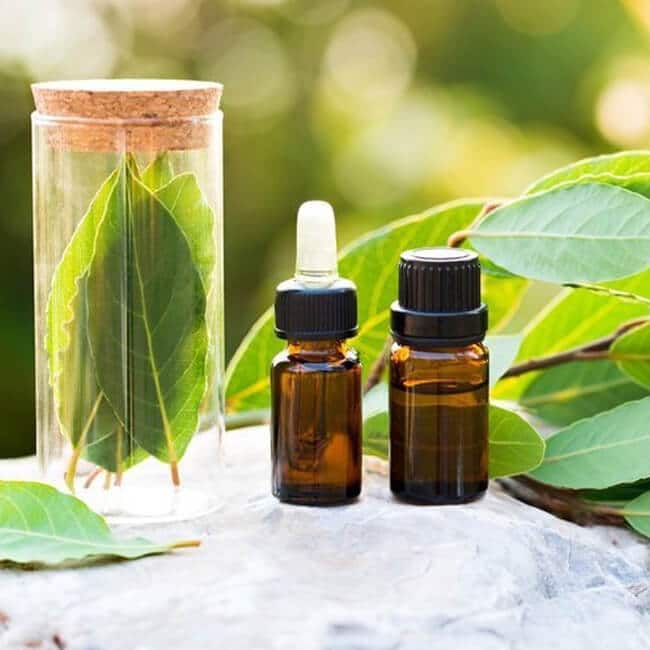
Steam distillation is used to produce Bay Essential Oil from the leaves of Laurus nobilis. It has a warm, spicy, and strong scent. It complements lavender, geranium, lemon, grapefruit, and ylang-ylang.
HOW TO USE
Take 1 glass of water and add 4 drops of Bay Oil to it; swirl this mixture 3-4 times each day.
BENEFITS
Bay oil is widely recognized for its antibacterial and analgesic properties, which make it a good toothache treatment. It also has astringent properties, which help to prevent tooth decay and other gum issues.
These are some of the home treatments that may be utilized to relieve the painful symptoms of abscessed teeth. However, although each choice offers advantages, there are some drawbacks as well. As a result, it is preferable to utilize every alternative only after acquiring a comprehensive knowledge and just for short respite. Following that, always make an appointment with a nearby dentist as soon as feasible.
Not only may essential oils assist relieve tooth discomfort, but they can also help you focus better on your everyday tasks, whether you’re at work or conducting research.
Is It Safe To Ingest Essential Oil?

Each type of oil includes a unique blend of natural chemical components that are specific to the plant species and the environment in which it is cultivated. For thousands of years, humans have consumed plants as food, as well as plant parts and extracts as herbal health remedies and teas made from leaves and flowers that contain essential oils.
One may argue that taking essential oils in modest amounts should be harmless, just as humans have done with plants containing essential oils. Essential oils are found in naturally balanced combinations since they are generated organically by plants. So, why is there still apprehension about using essential oils internally? Ingesting essential oils is not only harmless, but it may also be highly beneficial.
While the advantages we discover in nature are vital and necessary, it is also crucial to remember that too much of a good thing is a bad thing. For example, while we all require water on a daily basis in order to survive and grow, too much of it can lead to water toxicity. Similarly, utilizing too much essential oil might have severe consequences. That is why the label recommendations are so essential; they optimize the safety and benefit of the oil while limiting any adverse responses.
Grace is a certified aromatherapist that has studied the art and science of using naturally extracted elements from plants to promote health and heal the mind, body and spirit.





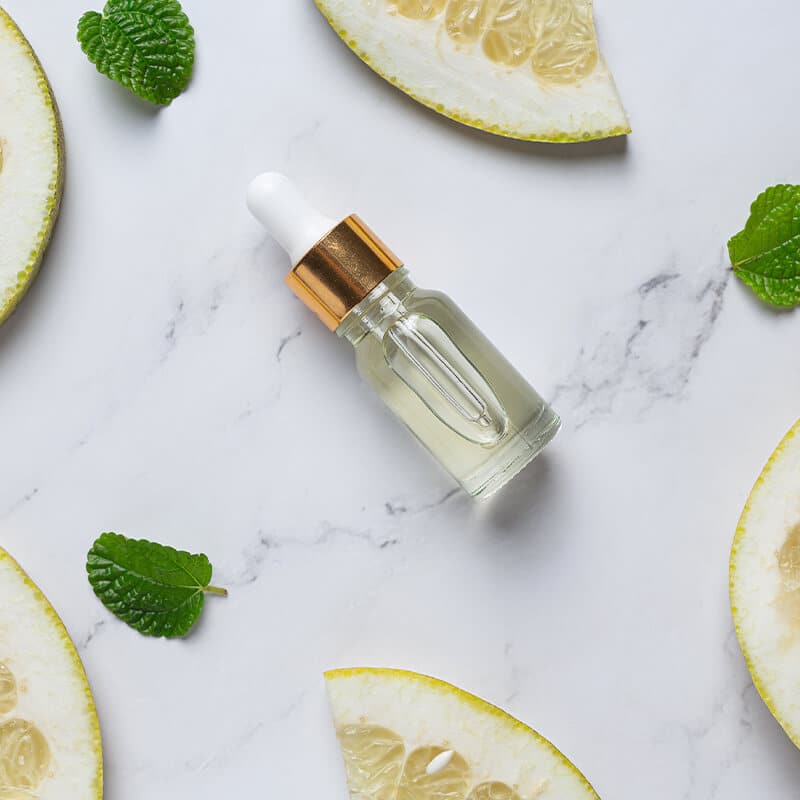
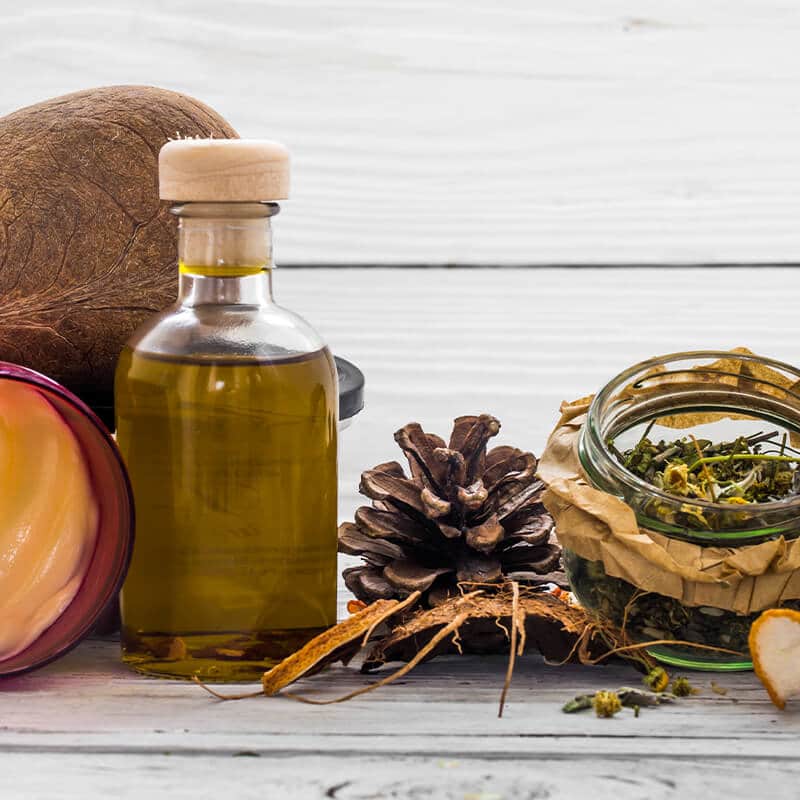
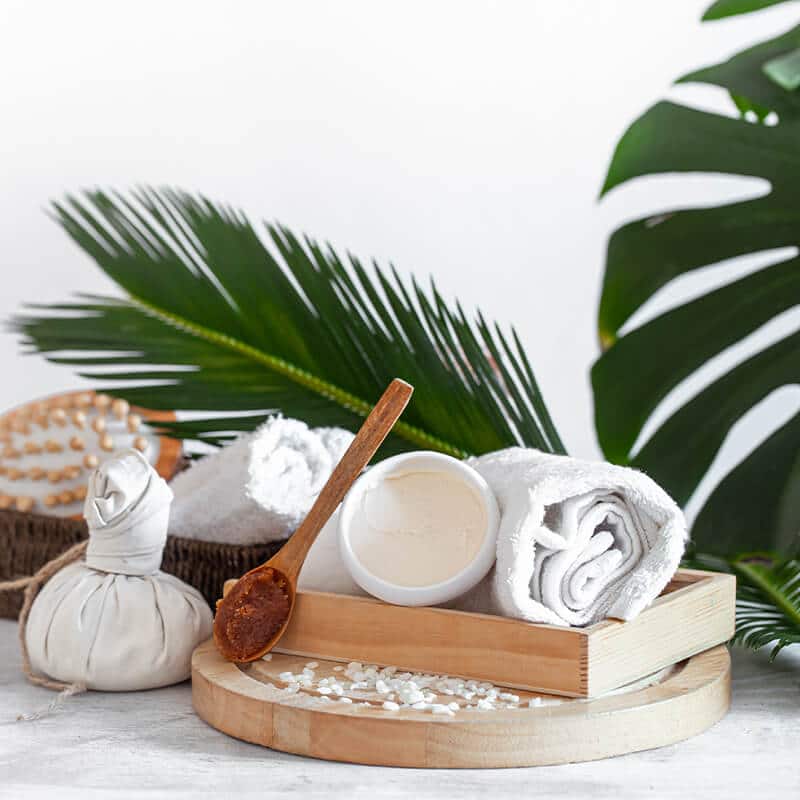


No Comments